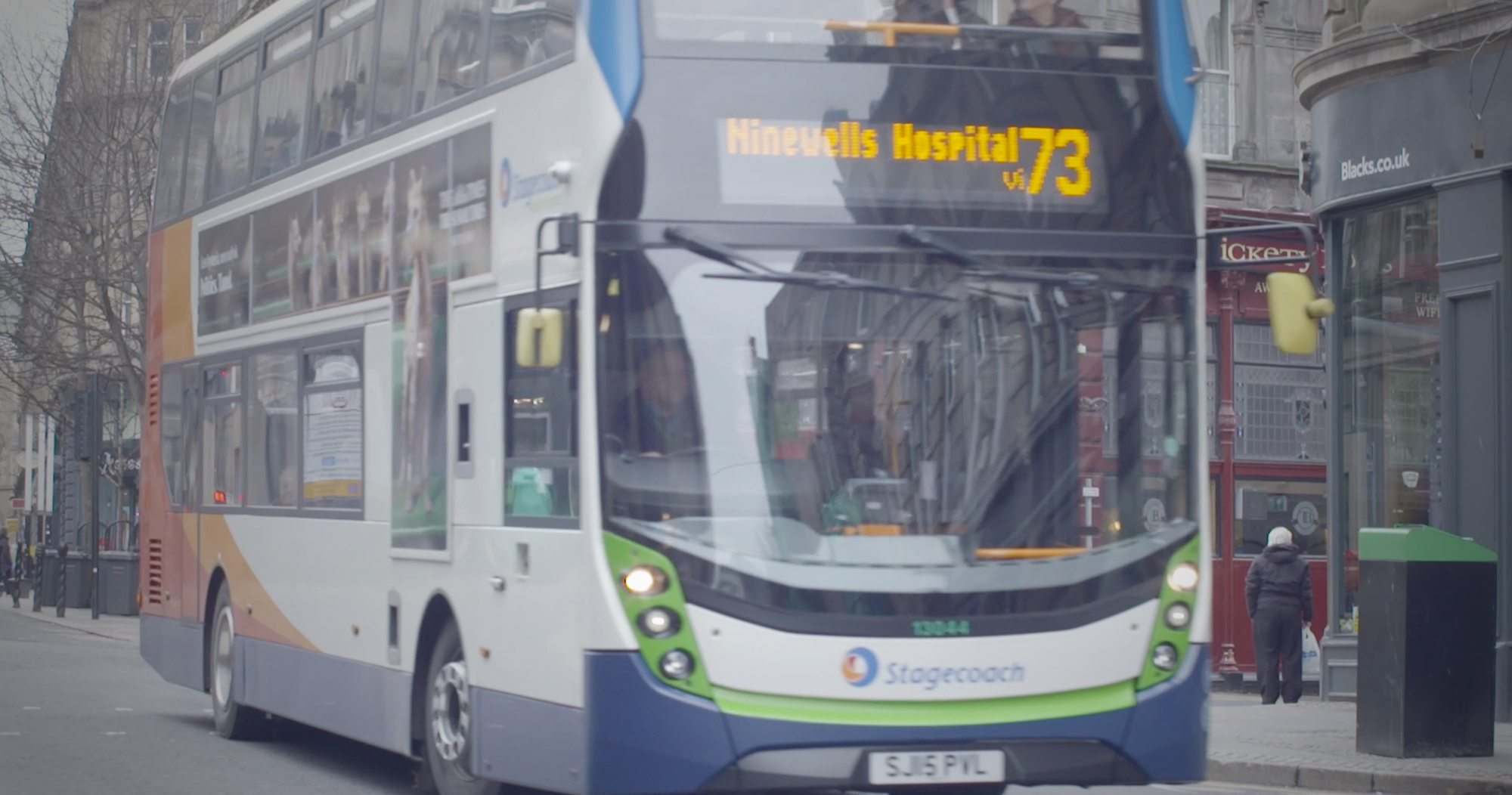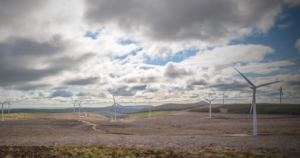Dr Peter Wood | Twitter
Dr Peter Wood is an Associate Lecturer in Environmental Science, Studies and Management at The Open University in Scotland.
How I learned to stop worrying and love the bus
Did you know that the average household spends more on transport than they do on rent, mortgage repayments, heating, or food? At the same time, transport has become the largest source of greenhouse gas emissions in Scotland and in the UK. Most recently, the war in Ukraine has pushed oil and gas to the highest prices ever seen, demonstrating a direct link between our everyday spending decisions and national security. In this context, Our Scottish Future’s Environment Commission set out to investigate how cooperation could reduce the cost of living, move us closer to net zero, and use our membership of the UK to amplify the best in Scottish society.
We found that improvements are simply not going to happen without radical change. In total, carbon emissions from transport have remained stagnant in Scotland over the last decade. Cars are now responsible for 57% of emissions from all transport in Scotland, excluding air and sea travel. So, given that not everybody is going to buy an electric car over the next few years, we need to get people out of cars. Buses are the best alternative, but bus fares have increased by 9% over inflation in the last 5 years, passenger numbers are down, and we are not manufacturing nearly enough new electric buses to replace our old diesel vehicles.
Happily, the commission also found that rapid change is possible. We made four proposals, which you can read about in our report:
1. Fair Fares. We need to make bus travel affordable for everybody – with a maximum fare of £2 for the average journey (currently 7.5 miles or 12km).
2. Nationalise the network, not the operators. We would create new Transport for Scotland Authorities to bring in regional franchising that looks beyond party politics, to decarbonise the bus fleet, improve services and increase ridership in line with the 2030 climate targets.
3. A single travel card, that starts in Scotland but works across the UK. This would improve inclusivity, so that the lowest prices are available to everyone, not only those able to pay via smartphone or contactless. It would improve public safety so that anyone caught short, particularly late at night, can borrow a fare from their council rather than being left stranded on the roadside.
4. An industry-building, world-leading, UK-wide bus decarbonisation agreement. By committing to electrify the Scottish and UK bus fleets we could create well-paid, sustainable manufacturing jobs here in Scotland, and drive down the global cost of meeting net zero.
Why focus on buses?
We’re making the case that cooperation – choosing to travel together on the bus rather than alone in cars – is the fastest way to reduce the cost of living and to prevent climate breakdown. If we have more people buying bus tickets we can afford to make each ticket cheaper. If our government takes a leading role in coordinating the bus network we can make sure those extra fares work for people: no greenhouse gases, less air pollution, better timetables and only one charge – even if the journey takes multiple buses.
Combining consumer spending with government coordination can make a real difference. For large parts of the country a £2 fare would mean savings of 15-25 per cent on a single adult ticket. But for many of our small towns – particularly in areas like Lanarkshire, Fife, the Forth and Taymouth – the savings could be much, much more. Here, even short journeys to the next town or into the closest city can mean dramatic charges for changing buses or crossing local council borders. What would be a 20-30 minute car ride can easily become a bus journey that costs £15 and takes over an hour. But it doesn’t have to be this way.
To meet our climate goals, we need to start seeing significant reductions in greenhouse gas emissions every year, starting now. The quickest way to cut carbon emissions is to get more motorists to take journeys on clean electric buses. If we electrified our buses, then merely doubled the number of bus journeys taken by current motorists, we’d slash total transport emissions by a third.
To drive these improvements we propose to bring together the best ideas from across the UK. The English city mayoralties have taken steps to develop franchising, showing that it can be done. In London, fares are only £1.55 per journey. Manchester is currently aiming for £2. All buses in Northern Ireland are run by the publicly-owned Translink. Wales is evaluating franchising and making open data available via the publicly-funded PTI Cymru. Even the island of Jersey has even developed a small-scale franchise for £2 rural buses. Scotland can add its own expertise in publicly-owned Lothian Buses, the modernised Glasgow Subway, and in running public transport at the largest rural scales.
The UK and Scottish governments can achieve the most by working together, planning for the long term, and using their unique strength to anchor a just transition. Committing to create a world leading bus manufacturing industry will create jobs in Scotland, reduce costs across the UK, and so lower the cost of net zero transport in other countries.
Our Scottish Future believes that the evidence is clear – cooperation is the most effective way to move forwards. We call on the Scottish and UK Governments to make the radical changes required: fair fares, a nationalised network, a single travel card, and electric buses.
To learn more about our proposals for public transport and the cost of living crisis, you can read our new report.
To stay informed about the work of our Environmental Commission, including our campaign for a COP-UK, you can sign up here.






